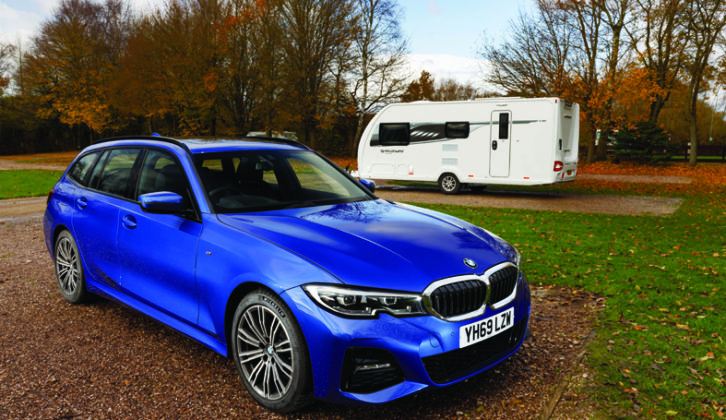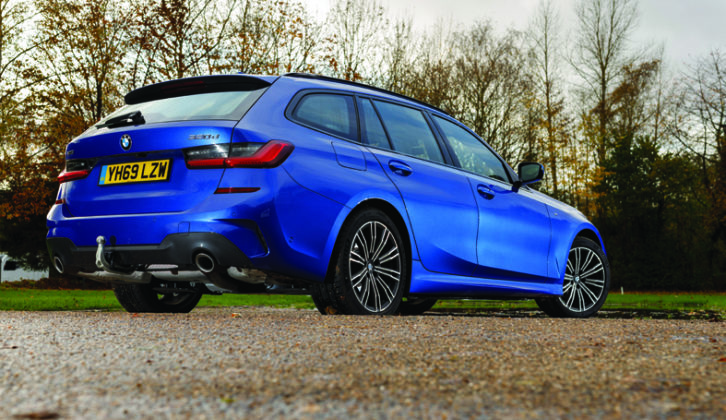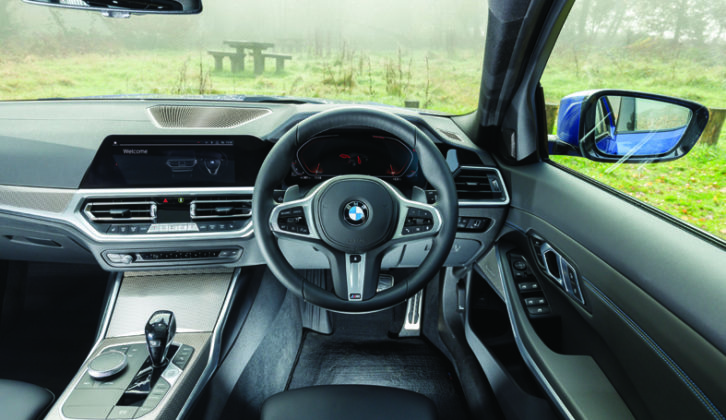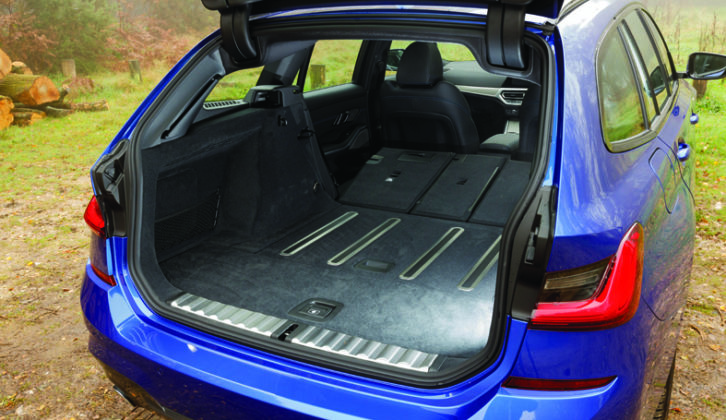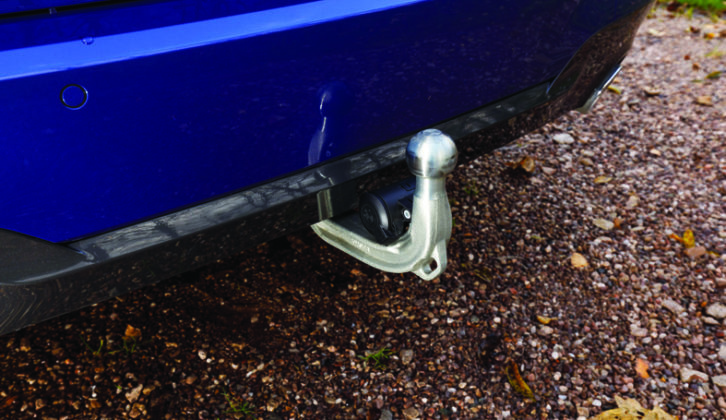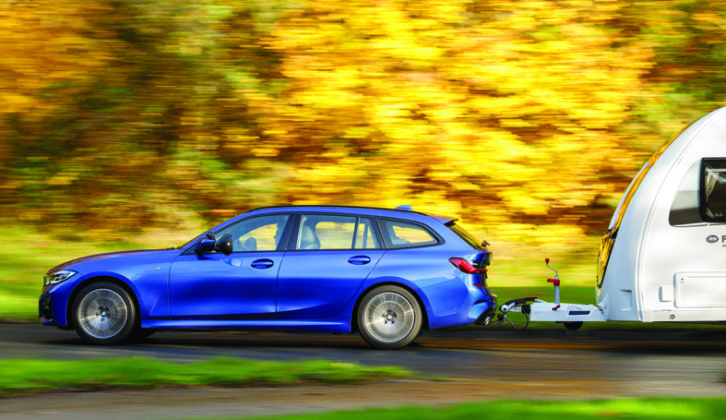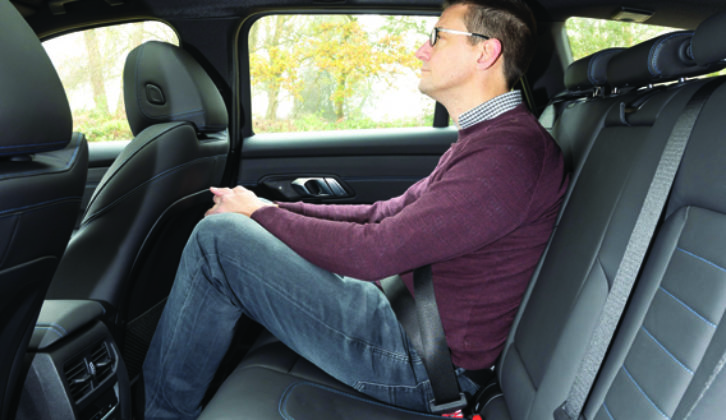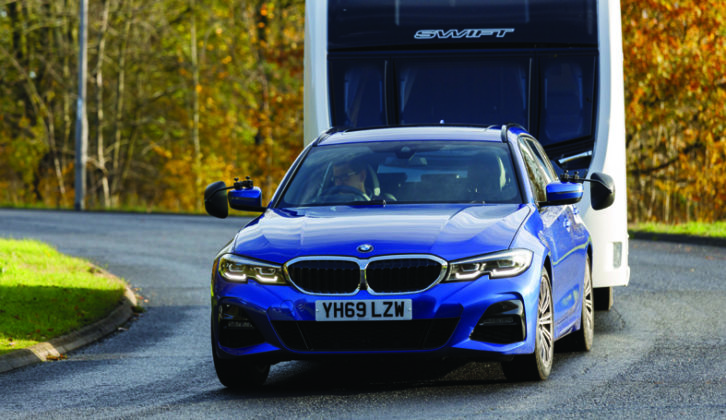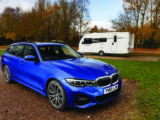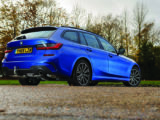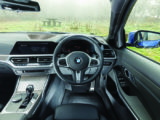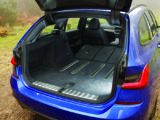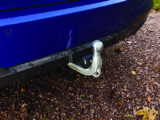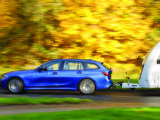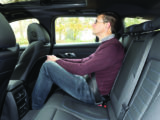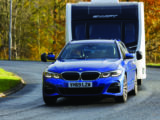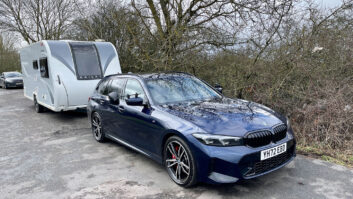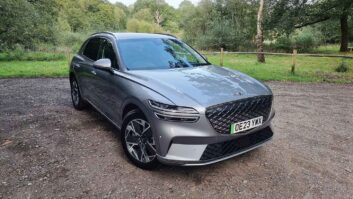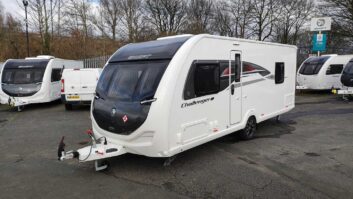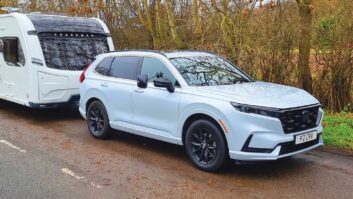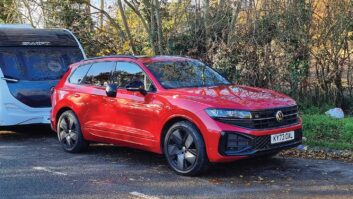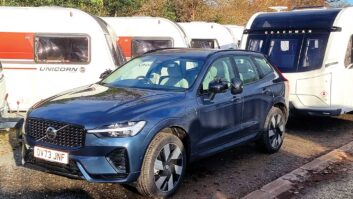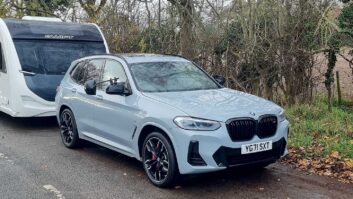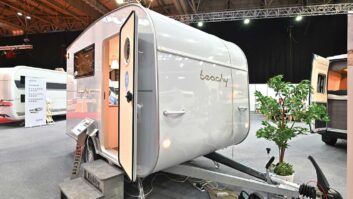Verdict
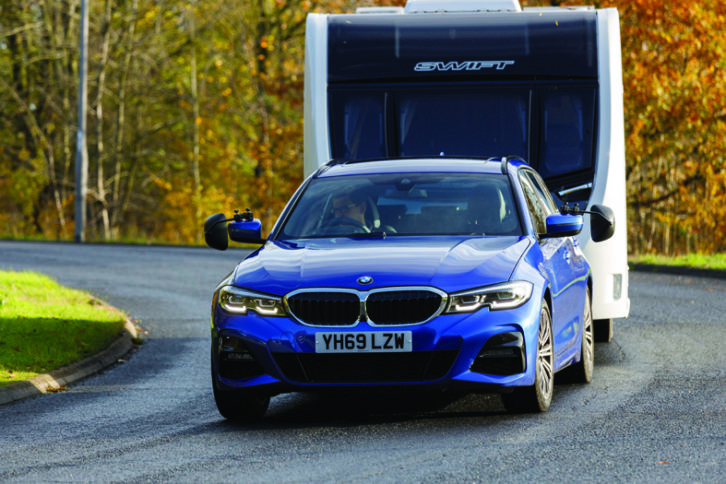
The 3 Series is invariably at or very close to the top of the compact executive class. For our money, the BMW has the edge on all of its competitors.
Perhaps the Audi A4 is a little quieter and more comfortable on the motorway, but otherwise, the 3 Series is very good or downright brilliant in most other respects.
Keen drivers will find it the most rewarding car of its kind, with the possible exception of the Jaguar XE. It drives with verve and composure whenever the road twists and turns. What’s really impressive is how this doesn’t make the BMW hard to live with in everyday driving. With the adaptive dampers set to ‘comfort’, the ride is firm but well-judged.
It’s a superb tow car, and the pick of the range for towing, combining four-wheel drive with strong performance and excellent economy. Its stability at speed is also confidence-inspiring.
The whole family should enjoy the ride, thanks to improved rear-seat space. The 500-litre boot means there ought to be enough room for their bags, too.
The 3 Series falls just short of five stars, partly because you can buy more practical estates for a lot less. It’s also because the best suspension set-up is a pricey option.
However, even if you opt for a more affordable trim level, this is a thoroughly impressive car If you have £40,000 or so to spend and value driver appeal over maximum space, it should be at the top of your shortlist.
Pros
Towing ability; solo drive; performance; excellent economy
Cons
Less boot space than rivals; run-flat tyres rather than a proper spare wheel
The new BMW 3 Series offers more space, improved safety and a host of high-tech driver aids. We’re testing the Touring (BMW’s name for its estate models) with a 187bhp 2.0-litre diesel engine.
This model promises to strike a very good balance between performance and economy, and is available with BMW’s xDrive 4×4 system.
What are we looking for?
With a healthy kerbweight, a punchy engine and four-wheel drive, the BMW’s towing credentials look strong.
We want to see if the 3 Series is as good in practice as it is on paper. We’re also keen to find out if the new BMW continues to be the benchmark compact executive for driver appeal.
Maintaining speed on hills is simple, as the superb eight-speed gearbox seems always to know which gear is needed
Towing
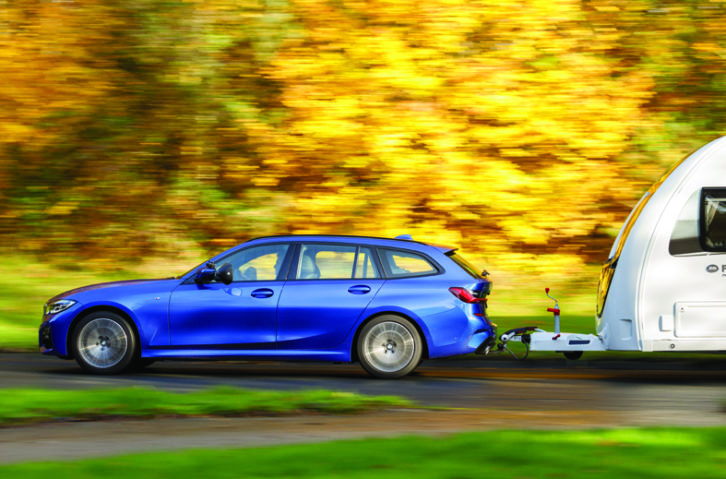
The latest 3 Series is a little lighter than the old model, but fortunately, the diet hasn’t been extensive enough to spoil the car’s matching ratios; the 320d xDrive Touring has a healthy kerbweight of 1790kg.
We matched the car to a Swift Fairway Platinum 530 with a MiRO of 1375kg.
Straight away, the 3 Series felt at home towing the Swift. It helps that the engine has 295lb ft of pulling power. That’s more than enough to tow a caravan of this size and weight. Whereas some vehicles take a conscious effort from the driver to hold 60mph, with the 320d it takes an attentive eye on the speedo to stick to the limit.
On the motorway, performance combines with excellent stability to make for very comfortable and relaxed towing. There are very few nudges or wobbles from the caravan, the BMW simply pulls straight and true, even in breezy weather. Overtaking coaches and lorries doesn’t faze it, either.
The 320d is just as composed on A- and B- roads. Bumpy surfaces don’t knock the car off course, and there’s plenty of punch to overtake tractors or Sunday afternoon dawdlers. Maintaining speed on hills is simple, as the superb eight-speed gearbox seems always to know which gear is needed. The changes themselves are quick and extremely smooth.
Most 3 Series models are rear-wheel drive, but we think the xDrive 4×4 system is a definite plus for tow car drivers. Not only does it make it easy to pull away with no drama, even on damp roads; the extra weight of the four-wheel-drive components increases the car’s kerbweight by 55kg compared to the rear-wheel-drive model.
It certainly makes for fuss-free hill starting. We found the electronic parking brake held car and caravan still on a 1-in-10 slope, then released smoothly without allowing the car to roll back. The 3 Series towed up the gradient with no wheelspin or any other sign of strain.
Arrive at your campsite, and the 3 Series is very easy to manoeuvre. The reversing camera makes hitching up on your own really straightforward, and the automatic gearbox is happy to creep at low speed in drive or reverse.
Towball and electrics cost £850. The towing gear lowers into place or motors back out of sight at the push of a button, so there’s no need to lock the towball in position by hand. There’s lots of clearance between the towball and the bumper, and the side-mounted electrics make slotting home the 13-pin plug a simple job.
All told, it’s hard to find serious fault with the 3 Series as a tow car, We appreciate that many caravanners would prefer a proper spare to run-flat tyres (although it’s worth noting that a space-saver spare is a £190 option on most 3 Series Touring models). But otherwise, the 320d tows superbly.
Everyday Driving
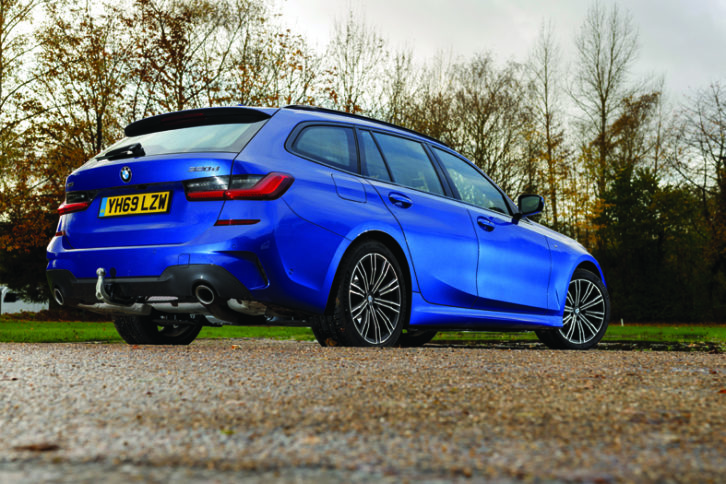
As an everyday drive, the 3 series Touring comes close to being the perfect all-rounder. That’s especially true if the car is fitted with the M Sport Plus package. This isn’t cheap, costing £2200. But it adds Adaptive M Suspension, as well as some visual upgrades to the interior and exterior.
It’s a shame the suspension upgrade can’t be ordered on its own at a lower price, but there’s no doubt the 3 Series is at its best with this option box ticked.
The adaptive suspension allows the driver to tune the suspension to suit the road and the way they are driving. Set to ‘comfort’, the car is significantly more forgiving of rough roads than with the regular M Sport suspension, although the ride is still on the firm side. We found ‘comfort’ the best compromise for almost all driving conditions, only switching to ‘sport’ on quiet country roads. This stiffer setting delivers precise and agile handling, but lumps and bumps are felt more readily.
Switching modes alters the responses of the throttle, gearbox and steering. There’s extra weight to the wheel in the ‘sport’ setting, and a more immediate reaction to your right foot from the accelerator. But make no mistake: even in ‘comfort’, the 3 Series is sporty and rewarding.
At speed, there’s a little more road noise than you’d hear in the cockpit of an Audi A4, but it’s easy enough to hold a quiet conversation at 70mph.
Without the extra bulk and aerodynamic drag of a caravan behind it, the 3 Series can really shift. BMW claims a 0-62mph time of 7.4 seconds for the 320d xDrive Touring.
You can go quicker still if you opt for the more powerful 330d. However, it’s considerably more expensive to buy and fuel. For us, the 320d is fast enough, while offering excellent economy and a long range.
Around town, you are aware of the firm ride, but the 3 Series is easy enough to manoeuvre, just as happy to creep through traffic as to cut and thrust down a favourite country road.
Space
For a compact executive estate car, the 3 Series Touring is practical. But it shouldn’t be forgotten that there are many estates with less prestigious badges that offer a lot more room for people and bags.
That said, we think that most families of four would be able to find enough room in the BMW. The driving position is low-slung but supportive, with a wide range of adjustment.
Our car came with sports seats, a no-cost option. Unusually, the position of the side bolsters could be adjusted to avoid the rather pinched, hemmed-in feel you sometimes get with sports seats.
The standard of finish is high, and we found the infotainment system excellent.
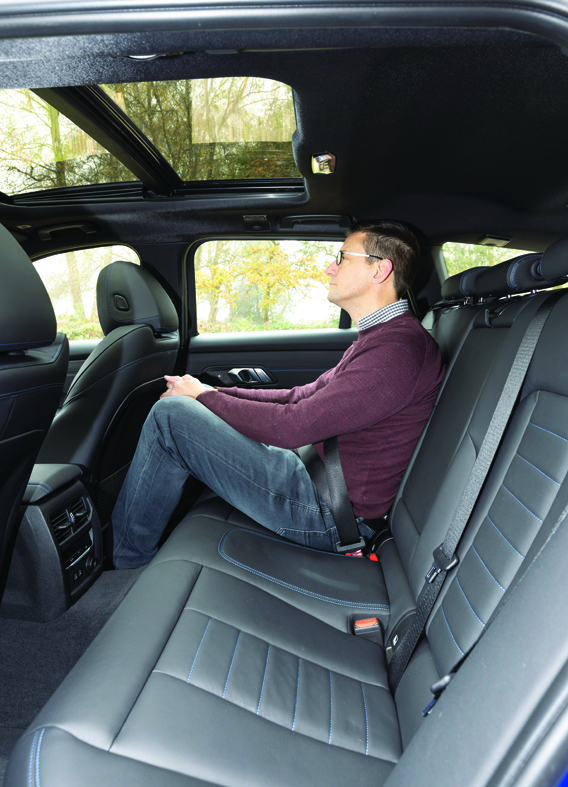
In the back, there’s room for adults to get comfortable, even though the sunroof compromises headroom front and rear. There are air vents between the front seats, and separate temperature controls. The transmission hump means two passengers will be a lot more comfortable than three.
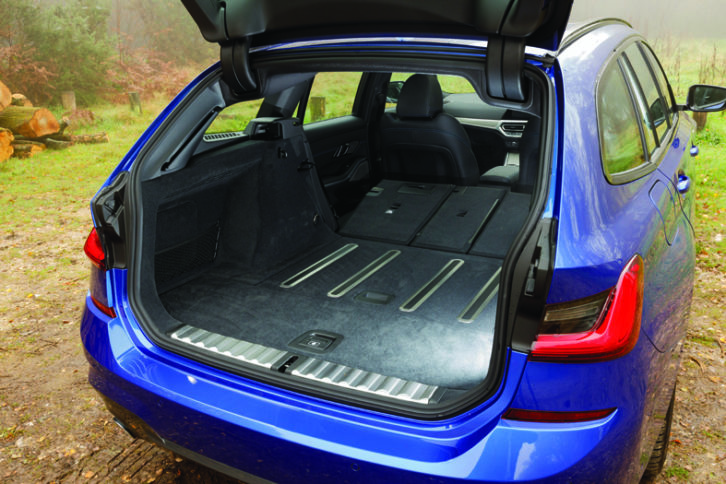
With its 500-litre capacity, the boot is 10 litres bigger than a Mercedes-Benz C-Class Estate’s, but five litres smaller than an Audi A4 Avant’s. And all are dwarfed for luggage space by the Škoda Superb Estate and Volkswagen Passat Estate. With the rear seats folded (buttons by the tailgate lower them for you), the capacity increases to a useful 1510 litres.
Running Costs
The BMW’s price of more than £40,000 means there’s a high car tax bill to pay until it is five years old (cars costing more than £40,000 attract a £320 surcharge). But the cost is similar to rivals from Audi and Mercedes-Benz.
Although the BMW has only been on sale for a few months, What Car?’s researchers have found that discounts of more than £2000 are available, with a little polite arm-twisting.
Fuel bills should be low, for regular driving and towing. On a motorway drive, we saw better than 50mpg, and a remarkable 32.3mpg while towing.
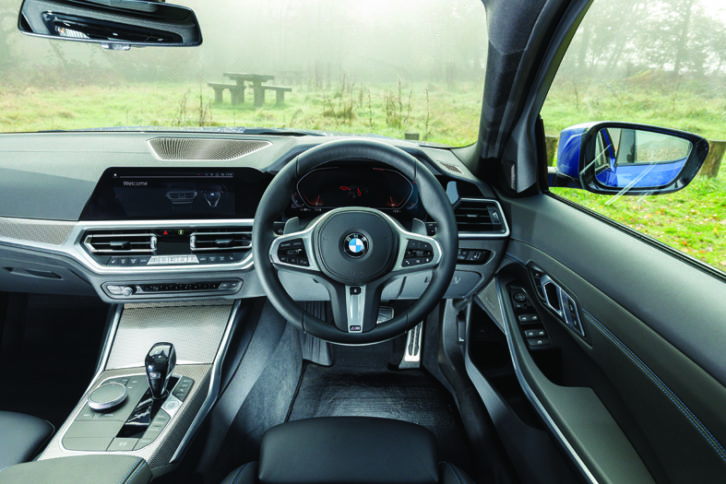
M Sport models are extremely well-equipped – as they should be at the price – although it’s worth noting that AppleCarplay is only included for a year, and owners then pay a subscription. Android Auto isn’t supported.
The 3 Series has a five-star safety rating from Euro NCAP.
If you liked this… READ THESE:
If you’ve enjoyed reading this article, why not get the latest news, reviews and features delivered direct to your door or inbox every month. Take advantage of our brilliant Practical Caravan magazine SUBSCRIBERS’ OFFER and SIGN UP TO OUR NEWSLETTER for regular weekly updates on all things caravan related.
Technical Specifications
| Engine Size | 1995 cc |
| Kerbweight | 1790 kg |
| 85% KW | 1522 kg |
| Towball Limit | 75 kg |
| Maximum Towing Limit | 1800 kg |
| Power | 187 bhp |
| Torque | 295 lb ft |
| Offical MPG | 47.9-49.6 mpg |
| Towing MPG | 32.3 mpg |
| CO₂ | 124 g/km |
